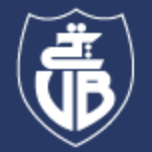The introduction of the University of Béjaïa is as follows:
Introduction and Overview
The University of Béjaïa is a large public comprehensive university in Algeria, located in the city of Béjaïa in the Bejaïa Province of Algeria, which is an important port city in Algeria. The school has a large student population and faculty team, providing students with a wide range of subject choices and rich academic resources.
History and Establishment
Founded in October 1983, it was originally a university center and became a university in 1998. It was named after Abderrahmane Mira, a hero of the Algerian War of Independence.
School Strength
Disciplines and majors: There are 8 colleges, offering nearly 200 undergraduate, master and doctoral majors, covering technology, exact sciences, natural and life sciences, language and literature, law and political science, medicine, economics, trade and management, human social sciences and other fields.
Faculty: With more than 1,600 faculty and staff, it can provide students with more professional and comprehensive teaching and guidance.
Research: Actively carry out scientific research activities, with about 30 research laboratories, covering multiple fields such as system modeling and optimization, materials and process engineering technology, organic materials, environmental engineering, hydraulics, information and industrial technology, biomathematics, biophysics and biochemistry.
Nature of the institution
Public university, funded and managed by the Algerian government.
Educational philosophy
Committed to coordinating sustainable development with the challenges of globalization, focusing on close ties with the socio-economic sector, and encouraging students to participate in social practice and scientific research projects to cultivate high-quality talents that adapt to market demand and have an international perspective. At the same time, it emphasizes multilingual teaching, and uses French, Arabic and Berber to teach to reflect Algeria's multilingual and cultural environment.
Key laboratories and disciplines
Key disciplines: In the 2024 THE ranking, engineering ranks 1001+, and life sciences and physical sciences are both ranked 1001+. Disciplines such as agriculture and forestry, biological sciences, civil engineering, chemical engineering, electrical and electronic engineering, mechanical and aerospace engineering also have certain strengths.
Key laboratories: There are about 30 research laboratories including system modeling and optimization, materials and process engineering technology, organic materials, environmental engineering, etc.
Faculty
There are 8 colleges including the College of Technology, College of Exact Sciences, College of Natural and Life Sciences, College of Languages and Literature, College of Law and Politics, College of Medicine, College of Economics, College of Trade and Management, and College of Human Social Sciences.
Ranking
THE Ranking in 2025: 1501+ in the comprehensive ranking of world universities.
Arab region ranking: around 191-200.
Fees
As a public university, tuition fees are relatively low. Domestic students usually only need to pay a small amount of registration fees and other fees. The fee standards for international students may be different, but generally relatively affordable.
Campus environment
Campus distribution: There are mainly campuses such as Targa Uzemur, Abu Dawu, Amizour and Belchiche, and each college is distributed in different campuses.
Language environment: Due to the use of French, Arabic and Berber for teaching and communication, the campus is full of a multicultural atmosphere, and students can be exposed to different languages and cultures in their studies and life.
Living facilities: The campus is equipped with libraries, laboratories, gymnasiums, canteens and other living facilities to meet the students' learning and living needs.
-
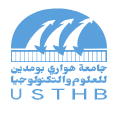
University of Sciences and Technology Houari Boumediene
-
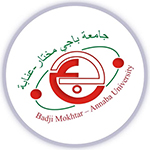
Badji Mokhtar University of Annaba
-
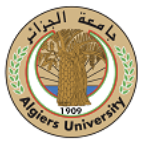
University of Algiers 1
-
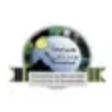
University of Boumerdés
-
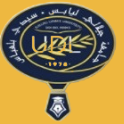
University of Sidi-Bel-Abbès
-
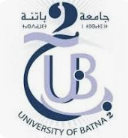
University of Batna 2
-
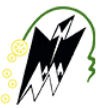
Univerisity of Tizi-Ouzou
-
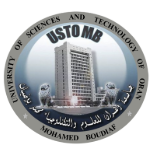
University of Science and Technology of Oran
-
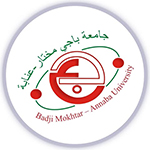
University of Annaba
-
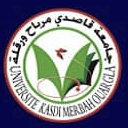
University of Ouargla
-

Mesoamerican University
-

Istmo University
-

Mariano Galvez University of Guatemala
-

Regional University of Guatemala
-

Galileo University
-

Francisco Marroquín University
-

Rafael Landívar University
-

University of the Valley of Guatemala
-

University of San Carlos of Guatemala
-

Technological Institute of Tlaxcala Plateau
-

Golfo University
-

Technological University of South Sonora
-

Technological University of Huejotzingo
-

Tizimín Institute of Technology
-

Chilpancingo Institute of Technology

